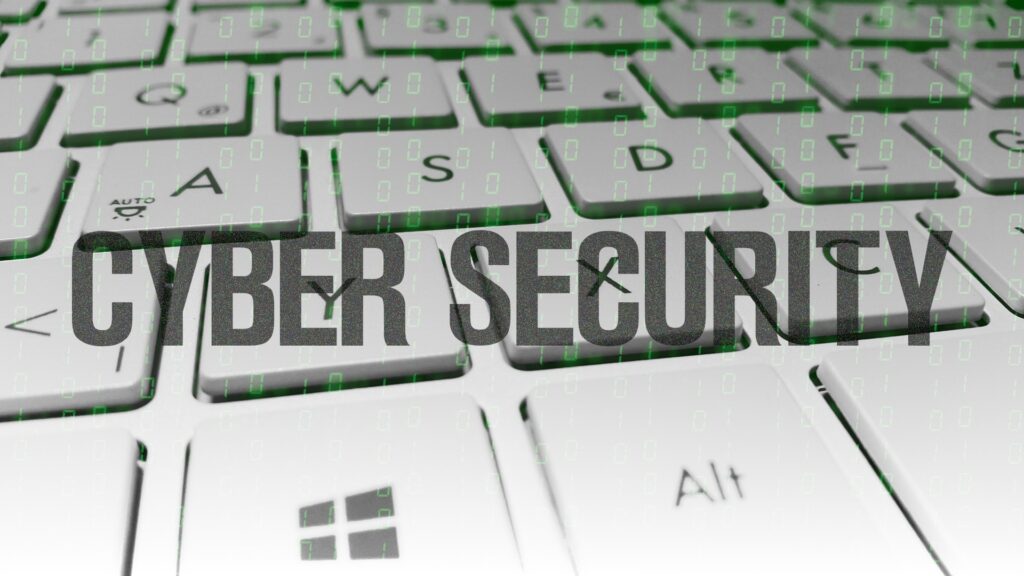The financial cost for companies is significant if they suffer from a data breach. In 2022, data breaches were twice as expensive for a U.S. company than in any other country.
Security awareness begins with the employees, even those in entry-level positions. Unfortunately, this means that larger companies may have more points of attack than small businesses. Security can’t survive unless it’s a part of every employee’s mindset. Keep reading to learn what makes cybersecurity training so crucial to organizational culture.
Why Cybersecurity Is Important in the Digital Landscape
Staying secure in the modern world involves a range of practices.
A company’s digital infrastructure includes electronic devices, computer systems, networks, and sensitive information. Defending against unauthorized access and data theft is an integral part of cybersecurity. It’s also necessary to follow state and federal privacy laws.
Cyber threats are ubiquitous. They can come from anywhere – because everything is connected. Every employee with access to a computer represents a potential vulnerability.
Hackers, viruses, ransomware, spyware, and malware are all cyber threats. A single breach can cost a company millions.
The fallout from significant data breaches may cause damage to a company’s reputation. It can cause financial losses and may inflict harm that isn’t immediately clear. The consequences may even take years to recover from.
Poor data protection practices can result in lawsuits and legal liabilities. Fines can result from failing to follow strict privacy laws. California, for example, sets out strict regulations on how to protect users’ data.
So, organizations need to put robust measures in place to protect themselves. Cyber threats exploit whatever weaknesses they can find. Firewalls, anti-virus software, encryption, and regular updates can help patch vulnerabilities.
Understanding Cybersecurity Training
Training programs are essential to educating employees on the latest threats. They explain how to create strong passwords and recognize phishing scams. They teach employees how to identify potential threats and respond swiftly and appropriately.
Cyber threats are everywhere, and they can affect any sort of company. The bottom line?
Security is everybody’s responsibility.
Different Types of Training Programs
There are different types of programs available that teach cybersecurity education. These include online certificates, classroom training, and employee workshops and refreshers. The benefits of training programs include:
- Stronger working knowledge of best practices
- Reinforcement that security is everybody’s responsibility
- Employee understanding of common cybersecurity risks
- Ability to identify vulnerabilities
- Understanding of the social element of data breaches
- Ability to identify malicious links and websites
Training should cover the latest regulations. It should provide hands-on experience using cybersecurity tools. Regular training sessions are necessary as cyber threats are constantly evolving.
These programs nurture a culture of cybersecurity. They help to reduce the risk of cyber attacks. And they reduce the fallout from data breaches after they occur.
Integrating Cybersecurity Training into Culture
The right employee mindset helps protect an organization from threats. Employees who act security-conscious in their work are less likely to make mistakes. This means ensuring employees take security seriously.
Small acts of carelessness can add up.
One of the best ways to do this is to foster a cyber-conscious culture in the workplace. A robust cybersecurity culture is where employees remember it is an essential aspect of their work. It’s one where everybody understands that complacency may lead to data breaches.
Company Culture and Values
Company culture is built by the people working there. Each employee brings their attitude to the table. Furthermore, the wrong mindset is harmful to good data practices.
That’s why aligning company values with good cybersecurity practices is crucial. Employees need to understand why security is essential. They must be clear about their role and understand how to play their part.
Communicating that security is a priority involves everybody. Good practices won’t be observed unless employees know how to act. Managers should lead by example.
Managers must educate themselves and their teams. Regular meetings are ideal for strengthening the message. Workshops should be readily available to those who want to commit.
Such workshops can cover simple practices like:
- Requiring strong passwords
- Requiring two-factor authentication
- Regular software updates
- Regular company memos
- Reinforcing security messages
Companies might also consider creating a security committee. That committee should be made up of employees from different sectors. Including people from all departments will help promote the importance of data security.
It demonstrates that data security is taken seriously throughout the organization. By including representatives from all walks of life, employees feel included. Including every department offers the opportunity to create robust, inclusive policies.
Cooperation creates a culture of awareness and vigilance as time passes.
Reinforcing Cybersecurity Among Employees
A company can’t afford negligence in its employees. Unfortunately, that could happen unless a security culture is reinforced. The core message to reinforce is that security is everybody’s responsibility.
Regular training sessions go a long way.
Such sessions can cover all manner of topics. Examples include:
- Identifying and reporting threats
- Avoiding phishing scams
- Verifying security certificates
- Watching out for unsafe practices among colleagues
Additionally, employees need to understand their role in maintaining security. They should know what to do if they see a potential threat. They should be encouraged to report any suspicious activity to the IT department.
Emails and posters in the office help keep everybody vigilant. Reward systems are another method of positive reinforcement. Encouraging desired behaviors in employees can be more effective than punishing negligence.
Take Proactive Action
Effective cybersecurity training may keep employees a step ahead of hackers. Creating a culture of security-conscious employees is vital to identifying and avoiding threats.
That way, you can manage them before they turn into breaches.
InterCoast offers a certificate program in Cybersecurity and other programs to help students achieve their education and career goals. Click here to learn more about our programs.


